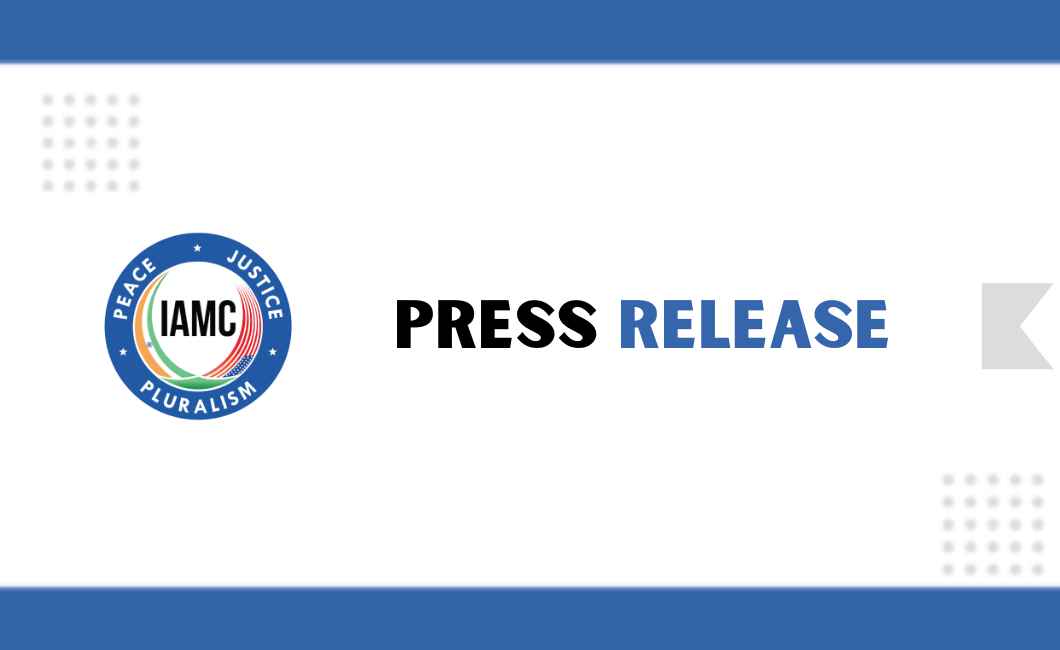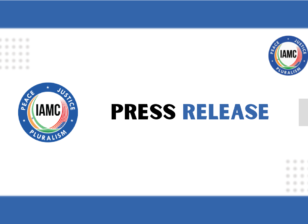UN member states raise concerns about violence against minorities, hate speech, draconian laws during India’s UPR
IAMC commends UN member states that highlighted human rights abuses against religious minorities
FOR IMMEDIATE RELEASE
Washington, D.C. (November 10, 2022) – The Indian American Muslim Council (IAMC) today commended United Nations member states that recommended India address critical human rights abuses, including violence against minorities, hate speech, shrinking civic spaces, and draconian legislations, caste-based discrimination, during the 41st Universal Periodic Review (UPR) at the UN Human Rights Council in Geneva, Switzerland.
The UPR is an annual process through which 1/5th of UN member states are reviewed by all other member states. States under review are presented with recommendations to improve their human rights record.
On Thursday, November 10, the United States, Canada, South Korea, Japan, and Ireland highlighted the threats faced by Indian minorities and called upon India to revise or discard discriminatory laws that target them.
Michele Taylor, the US ambassador to UN Human Rights Council (UNHRC), said that “discrimination against women and religious minorities persists” in India, and encouraged the Indian government to “strive towards democratic ideals” by revising the draconian Unlawful Activities (Prevention) Act (UAPA), the Foreign Contributions Regulation Act (FCRA), and similar laws targeting activists, journalists, and minorities.
Canada recommended that India “investigate all cases of religious violence, including against Muslims,” strengthen media freedom, and revise the UAPA.
South Korea recommended that India prioritize the “protection of religious minorities and marginalized social groups” and “promote freedom of peaceful assembly.”
Japan called on India to “end enforced disappearances,” referencing the rise in detentions of Kashmiri human rights defenders and civilians.
Several other countries also made statements on India’s treatment of minority groups. Commendably, Malaysia was the only country to specifically mention rising religious extremism among Indian Hindus, calling on India to “take concrete steps to eradicate extremist ideologies, [which] affects religious minorities.”
Turkey specifically recommended that India “prevent persecution against Muslims,” making it one of the only countries to name India’s largest victim group.
Czechia called on India to “repeal crimes of sedition and definition in line with international [standards] on freedom of speech, safeguard ethnic, religious, and linguistic minorities, and protect journalists from arbitrary detentions, “especially in Jammu and Kashmir.” Similarly, Luxembourg also called for releasing human rights defenders in detention.
The Holy See specifically recommended the prosecution of religious violence, referencing the rise in Hindu extremist violence against Muslims and Christians. Similarly, South Africa recommended that India hold accountable public officials who promote religious intolerance and hate speech, while Turkey and Norway called for combating hate speech in general.
Ireland and the Netherlands called for the review of anti-conversion laws, which are weaponized to promote violence against Indian Christians. Ireland also expressed concerns about the discriminatory nature of the Citizenship Amendment Act (CAA).
Germany, Costa Rica, Ethiopia, the Marshall Islands, and Cameroon called India to address caste discrimination and enact protections for the marginalized Dalit community.
The United Kingdom, Germany, Brunei, Djibouti, Angola, Portugal, and Croatia also recommended that India increase protection FOR religious minorities in general.
A number of other recommendations addressed draconian legislation and broader authoritarian trends under the Modi regime.
The United States, Canada, Australia, Ireland, Italy, Sweden, Greece, Estonia, Latvia, Lithuania, Brazil, and Czechia all expressed concerns regarding freedom of speech, freedom of assembly, and the overall shrinking of civic spaces in India.
Switzerland, Estonia, and Belgium joined the United States and Canada in calling for the UAPA to be revised or repealed. Belgium specifically mentioned that doing so would “ensure the right to freedom of expression.”
South Korea, Germany, Slovakia, and Australia joined the United States in calling for the FCRA to be revised or repealed.
However, several member states failed to raise the pressing issue of Hindu extremists’ calling for the genocide of Muslims, government officials promoting hate speech, the use of the judiciary to persecute minorities, the rise in mob lynchings, and the ban on Hijab.
IAMC further condemns India’s Solicitor-General Tushar Mehta — the head of the Indian delegation —for delivering a speech filled with lies and falsehoods on the floor of UNHRC during the UPR of India.
“Mehta’s vehement defense of India’s discriminatory legislations, draconian laws, and crackdown on journalists and activists makes it amply clear that the Indian government led by Prime Minister Narendra Modi will ignore the recommendations made by the member states and continue to persecute minorities,” IAMC Executive Director Rasheed Ahmed said.
IAMC and its allies remain committed to combating misinformation spread by the Indian government and call on all the governments worldwide to hold PM Modi and the ruling BJP accountable for egregious human rights violations and religious freedoms.



